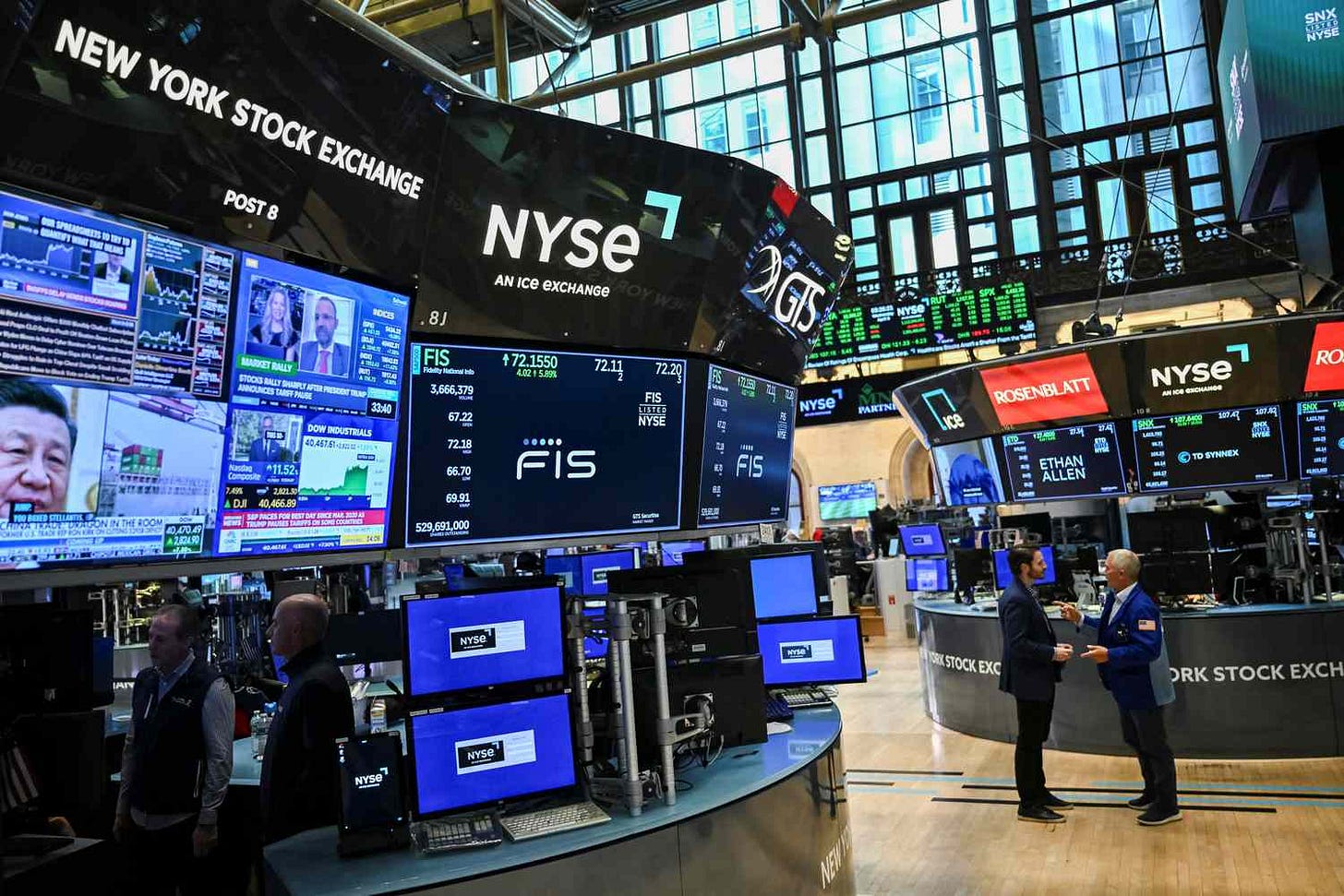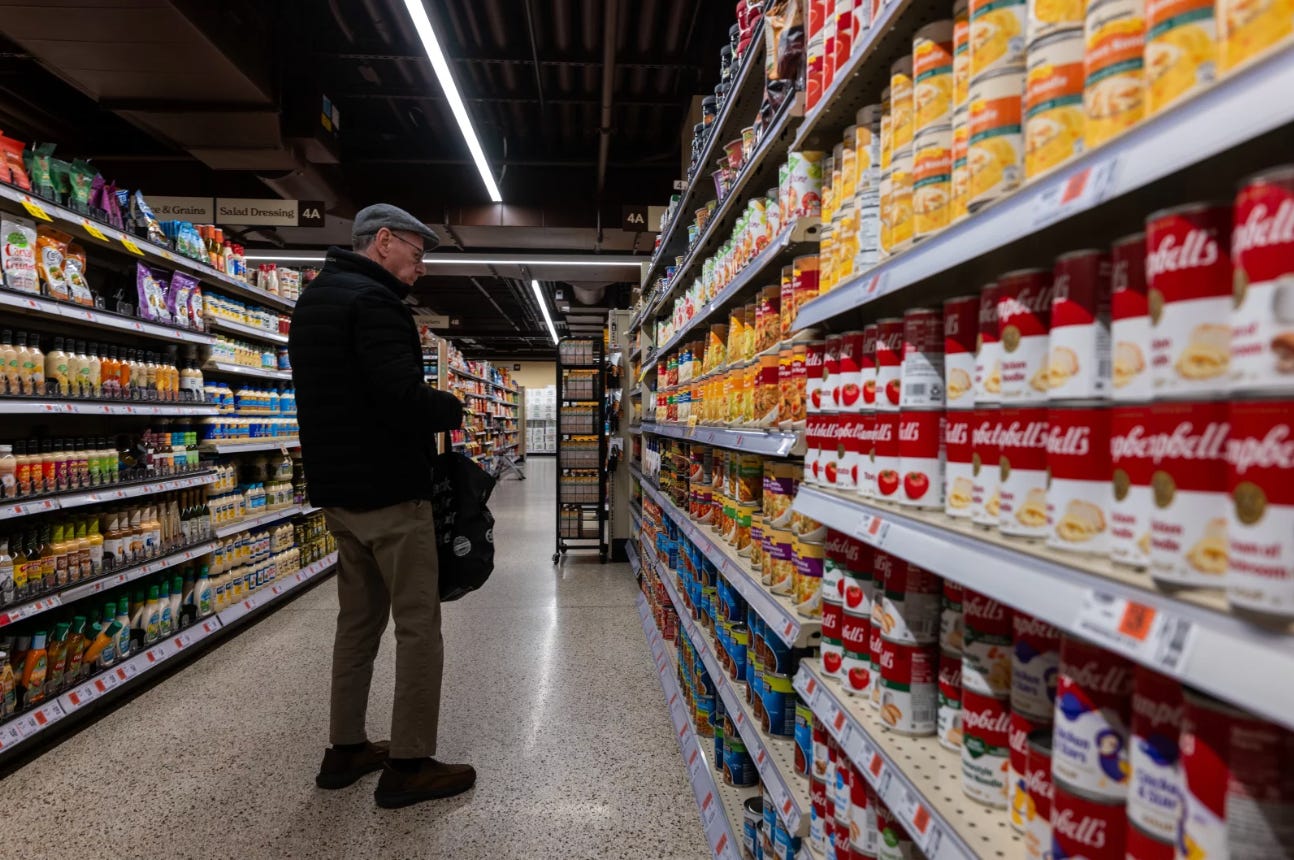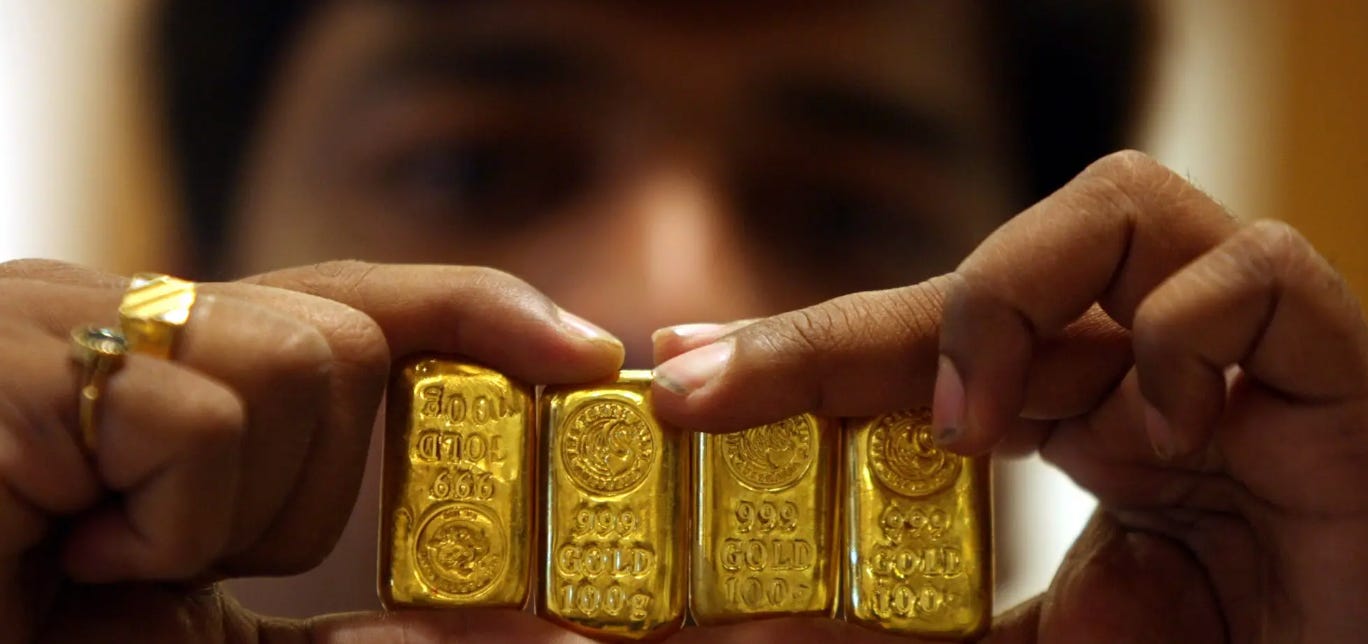Gold Is Soaring, Treasury Bonds Are Crashing — What Does It All Mean?
One of the safest bets in the world is no longer safe — and it’s costing you.
The bedrock of the global financial system trembled this week, and Americans are about to feel it in their wallets. US Treasury Bonds – the foundation of America's ability to borrow money affordably – are experiencing one of their most dramatic selloffs in decades.
It's a common misconception that the US simply calls up other countries to borrow money. In reality, the government sells Treasury Bonds – essentially IOUs that promise to pay investors back with interest. For decades, these bonds have been considered the world's safest investment because the US has excellent credit, has never missed a debt payment, and has been the global financial leader.
But this week, something unusual happened. The interest rate (or "yield") on a 10-year Treasury note surged roughly 50 basis points – meaning the US government suddenly has to pay significantly higher interest rates to borrow money. (One basis point is equal to 0.01%.) This directly affects you because these rates determine what you pay for:
Mortgage rates
Car loans
Credit card interest
Student loans
Small business loans
Simply put: when the government pays more to borrow, so do you.
Foreign investors are losing faith
Unlike market panics triggered by external factors – like the global pandemic or the 2008 housing crisis – this financial turmoil stems directly from policy choices: President Trump's sudden implementation of sweeping tariffs, particularly the staggering 145% levy on Chinese imports. While some tariff increases have been paused for 90 days, the damage to investor confidence appears more lasting.
Typically, when the stock market tumbles (as it did when these tariffs were announced), investors flee to the safety of US Treasury Bonds, where they know their money will be safe from the volatility of stocks. This time they are not only fleeing the stock market, but selling off US bonds simultaneously – a rare and troubling pattern that suggests deeper concerns about America's financial system itself.
“US government bonds were the safe-haven investment for the world's investors because they were seen as the rock in a turbulent world,” explains Paul De Grauwe, a professor at the London School of Economics. “Now the US. government is the preeminent source of turbulence and unpredictability. No wonder investors are looking for another rock.”
Reports indicate that foreign governments, including China with its $760 billion in Treasury holdings, are considering selling off US Treasury Bonds as well. When foreign investors sell US bonds, it signals growing concern about America's ability to manage its finances and function properly.
American global economic leadership has been supported by “alliances, faith in US. debt, and the independence of the Federal Reserve,” explains economist Ernie Tedeschi at Yale's Budget Lab. These pillars “were all built on trust that took decades to build,” but could be “decimated, taking decades more to rebuild.”
Think of it like your personal credit score. If you make erratic financial decisions, lenders become nervous and charge you higher interest rates. The same is happening to the US government – and those higher rates trickle down to everyday Americans.
Consumer confidence plummets as prices rise
The uncertainty created by on-again, off-again tariffs is already affecting consumer behavior. The closely-watched University of Michigan's consumer sentiment index shows consumer confidence fell for a fourth consecutive month, plunging to its second-lowest level in more than 70 years. The 11% decrease from March represents one of the sharpest declines on record.
This anxiety is creating a two-sided problem. First, there is so-called panic buying: People are rushing to purchase goods before prices rise. Apple saw spending surge 20% in early April compared to recent months. Grocery purchases of canned vegetables jumped 23% and instant coffee 20% in the five days following Trump's April 2nd tariff announcement.
Second, there's the potential for a future spending freeze. “When I talk to companies, they're more worried that people are not going to buy,” notes Simeon Siegel, a retail analyst at BMO Capital Markets, a large, respected investment bank known for their market insights and research.
Economists sound the alarm
Economists fear the domestic fallout from the tariffs could eventually push the economy toward recession. JP Morgan has raised its probability of a U.S. recession from 40% to 60%, warning that American policy is “tilting away from growth.”
In a recent interview, former Treasury Secretary Larry Summers explained how tariffs hurt American manufacturers rather than helping them, because the materials they need to import to be able to manufacture in the United States become more expensive, and thus, less competitive.
For example, a company making washing machines in America must pay more for imported steel due to tariffs, making their product more expensive for consumers.
“This is the worst self-inflicted wound through economic policy since the Second World War,” Larry Summers said. “It's wrong on competitiveness, wrong on unemployment, wrong on inflation, wrong on uncertainty.”
Summers suggested that the real winner isn't America but its chief rival: “The person who has a really artful deal here is Xi Jinping and China, who is seeing scope for influence, scope for new markets, scope to displace the United States of a kind they could not have imagined as a result of the policies that we are pursuing.”
From global markets to kitchen tables
For over 70 years, America has enjoyed what analysts call “US exceptionalism” in global finance – a unique position that has kept the dollar strong and borrowing costs low. This status is now in jeopardy.
Gold, traditionally seen as an investment that protects against instability, has gained 17% since the start of the year, outperforming both Treasury Bonds and the US Dollar. The fact that investors are buying more gold signals a profound shift in global confidence: does the United States remain a reliable steward of the world’s reserve currency, a position that has given Americans cheaper imports, lower interest rates, and greater global purchasing power for decades?
For Americans hoping simply for stable prices and predictable financial planning, the tariff uncertainty creates real costs. It's not about politics, but about how erratic policy shifts translate to higher prices at checkout counters, more expensive loans, and potentially lost jobs if the economy slides into recession.
When the world loses faith in America's financial foundation, we all pay the price.









I know a lot of people are hurting right now, including many folks in these comments, because of what's happening with the economy. I completely understand if someone reading this comment wants to tell me to shut up, and that's fair - I'm genuinely sorry about what you're going through. But I think there's an important point worth making here.
What we're witnessing is essentially Trump handing everyone the golden ticket to take him out of power permanently. His approval has always hovered around the same mediocre numbers, but the one thing keeping him afloat (if you consider always being unpopular “afloat”) was that people could say "he might be terrible, but my 401k has never been happier." That argument is evaporating fast. His economic approval rating, which sat at a comfortable 56% back in January, has now plummeted to 37% according to the latest Quinnipiac poll. And if you thought pausing the tariffs was going to restore his losses, I think Elise’s article illustrates that we are all about to feel the longterm harms of one man’s stupid, stupid fumble with the economy. The number one reason low-propensity voters gave him the benefit of the doubt has now become his biggest vulnerability.
So I think it's worth considering how to strategically harness this awful situation for the biggest silver lining possible: the end of Trumpism. But it's going to take some discipline. I don't mean to sound condescending—it's just a framework I've found helpful. Social media isn't your diary. It might feel cathartic to wish pain on fellow Americans for all to see, but that's shooting yourself in the foot. No stranger reading that will be convinced to see things your way. Find a more private outlet for that frustration. Group chats with likeminded friends can do wonders for this purpose. Or better yet, join a local political group you align with. They’ll be happy to vent with you.
When it comes to public discourse, I recommend wearing your altruistic hat. People will either regret their Trump vote or they won't. Some will stand by their decision for reasons that might seem incomprehensible to you, but being openly judgmental isn't productive. What brings people to the table are acts of service and genuine kindness. That doesn’t mean you have to forgive them for their role in this disaster, I’m just saying that acknowledging others’ humanity can go a long way toward your own interests.
I keep thinking about that woman who spoke to The Daily podcast in yesterday’s episode—the veteran turned entrepreneur who did everything right and was about to hit her big break when these economic forces hit. Now she's wondering if she'll lose her home. I haven’t finished listening to it yet, so I’m not sure if it covers her personal politics. I have no idea who she voted for, and frankly, it doesn't matter. She needs to sort out her own politics, not me. But if you want to win elections, you have to convince people your candidate will improve their actual lives. And a lot of people are about to see their lives in turmoil because of partisan politics.
It reminds me of the Young Lords in 1960s NYC. These college students had all the education to intellectually understand what their hometown community needed, but the community wanted action, not words. They had garbage piling up on sidewalks while the government ignored them. The Young Lords listened, then piled that garbage into the streets and set it on fire, causing massive traffic problems. Suddenly, the government paid attention, and the Young Lords earned community trust. For a while it seemed like they were on their way to being an enduring political force. Their eventual downfall came from internal politics, but the lesson stands: find a voter with a need, fill that need, and once you have their trust, don't abuse it.
This economic chaos gives us a chance to apply that lesson. Instead of mocking Trump voters who are hurting, what if we (average concerned citizens) organized community support networks for those facing foreclosure? What if we created job banks for people whose small businesses are failing under these tariffs? What if we assisted people who are suddenly finding it impossible to get their Social Security benefits? What if we showed up with actual solutions rather than "I told you so"? That's how you build a wider political tent—not through smugness, but through genuine service when people need it most. If this kind of thing sounds good to you, let me know because I want to help make this a reality.
As always, thank you to this little community of journalists and commenters for all of your insights. I look forward to reading what you write every weekday morning. Hang in there!
“Now the US. government is the preeminent source of turbulence and unpredictability.”
President Trump, everyone in his administration, and everyone that voted for and continues to support him are responsible.
Look in the mirror.
What part have you played?
What part will you continue to play?